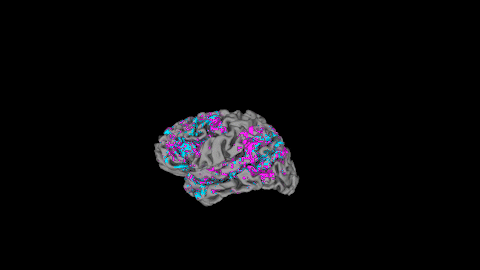Ethics
Enormous Stegosaurus Skeleton Called 'Apex' Smashes Auction Records and Sells for $44.6 Million
The 150-million-year-old dinosaur became the most expensive fossil ever sold at auction, raising old questions about whether such specimens should be put up for sale
Ansel Adams Estate Condemns Adobe for Selling A.I.-Generated Images Mimicking the Photographer's Style
The black-and-white landscape dupes, which have since been taken down, violated Adobe's generative A.I. policies
A Book Bound With Human Skin Spent 90 Years in Harvard's Library. Now, the Binding Has Been Removed
In the late 19th century, a French physician took the skin, without consent, from a female psychiatric patient who had died
What Newly Digitized Records Reveal About the Tuskegee Syphilis Study
The archival trove chronicles the extreme measures administrators took to ensure Black sharecroppers did not receive treatment for the venereal disease
Viral Lists Reveal Artists Whose Work May Have Trained an A.I. Art Generator
Thousands of painters, cartoonists, sculptors and other creatives are featured in the documents, which reinvigorated debates around copyright infringement and consent
Scientists Created a Monkey With Two Different Sets of DNA
So-called "chimeric" monkeys could help scientists understand human diseases and aid in conservation efforts, but the research raises ethical questions
Lolita the Orca Dies After More Than 50 Years in Captivity
Several groups were working to remove the 7,000-pound creature from the Miami Seaquarium and return her to the ocean at the time of her death
Researchers Create Model Human Embryos Using Stem Cells
The teams hope to learn more about the first few weeks of human development and provide insights into treatments for infertility and diseases
Scientists Can Now Pull Human DNA From Air and Water, Raising Privacy Questions
Environmental DNA helps monitor elusive and endangered animals, but it could be an ethical minefield when used with humans, new study shows
See Tables Crafted From Human Tissue, a Toad With Eggs on Its Back and More at This London Museum
The newly reopened Hunterian Museum acknowledges the ethical quandaries posed by its collection of anatomical specimens
Researchers Use A.I. to Decode Words From Brain Scans
A new tool translates "something deeper than language," generating text that captures the gist of podcasts or silent films viewed by participants
This A.I. Used Brain Scans to Recreate Images People Saw
The technology, which was tested with four people, is still in its infancy but could one day help people communicate or decode dreams, researchers say
Mexico Bans Great White Shark-Related Tourism on Guadalupe Island
The government cited bad practices in the industry as a reason for the ban, which has sparked concerns for the local economy
Why a London Museum Is Removing the Skeleton of an 'Irish Giant' From View
Charles Byrne asked for his body to be buried at sea. Instead, an anatomist bought his bones and displayed them to the public
How a New York Tabloid Captured the First Photo of an Execution by the Electric Chair
In January 1928, Tom Howard of the "Daily News" smuggled a camera into Sing Sing, where he snapped a picture of Ruth Snyder’s final moments
Is It Ethical to Hunt Captive Lions?
In South Africa, the big cats are raised to be killed by hunters. Opponents are outraged, but advocates point to conservation benefits
Why the Smithsonian Adopted a New Policy on Ethical Collecting
For more than a century, museum artifacts were acquired in ways we no longer find acceptable. How can we repair the damage?
Tourism Gets a Refresh in the Hands of Activists Seeking to Decolonize the Industry
Operators practicing 'solidarity tourism' push back against travel that can be environmentally and socially destructive
Mississippi Returns Hundreds of Native Americans' Remains to Chickasaw Nation
Decades after their bones were placed in storage, the state has repatriated the remains of 403 Indigenous ancestors
How Scientist Jennifer Doudna Is Leading the Next Technological Revolution
A new book from Steve Jobs biographer Walter Isaacson offers an incisive portrait of the gene editing field that is changing modern medicine
Page 1 of 7
:focal(4141x3115:4142x3116)/https://tf-cmsv2-smithsonianmag-media.s3.amazonaws.com/filer_public/f9/53/f95302c9-5ef8-40c8-8841-09f6795634e9/apex_photo_credit__matthew_sherman_3.jpg)
:focal(2660x1773:2661x1774)/https://tf-cmsv2-smithsonianmag-media.s3.amazonaws.com/filer_public/8c/7d/8c7dcf14-7120-4436-a2d8-61caf63086a2/gettyimages-685173467.jpg)
:focal(426x284:427x285)/https://tf-cmsv2-smithsonianmag-media.s3.amazonaws.com/filer_public/5b/4e/5b4e021b-f23d-4489-847a-6b690f96a258/screenshot_2024-03-29_at_112205am.png)
:focal(960x699:961x700)/https://tf-cmsv2-smithsonianmag-media.s3.amazonaws.com/filer_public/17/cc/17cc6634-edb7-490c-b558-86c2c2bbb276/1920px-tuskegee-syphilis-study_doctor-injecting-subject.jpeg)
:focal(3024x2016:3025x2017)/https://tf-cmsv2-smithsonianmag-media.s3.amazonaws.com/filer_public/f3/de/f3dec80f-7410-4bc1-8440-eeb2e3eb1939/gettyimages-1247801442_1.jpg)
:focal(350x237:351x238)/https://tf-cmsv2-smithsonianmag-media.s3.amazonaws.com/filer_public/14/13/1413891e-20a1-455a-ae86-de4e417a67b3/chimericmonkey.jpeg)
:focal(1500x943:1501x944)/https://tf-cmsv2-smithsonianmag-media.s3.amazonaws.com/filer_public/9b/31/9b3122c6-4d38-41e1-a01b-6e8c7e9ecacf/gettyimages-1601917756.jpg)
:focal(1500x943:1501x944)/https://tf-cmsv2-smithsonianmag-media.s3.amazonaws.com/filer_public/44/6c/446c7d21-6bf6-41ba-95ea-486a6ba8f817/gettyimages-72547929.jpg)
:focal(1440x1083:1441x1084)/https://tf-cmsv2-smithsonianmag-media.s3.amazonaws.com/filer_public/0d/62/0d62d403-c7b8-4b24-b0fd-f3e82a65be12/human-dna-is-everywher-1.jpg)
:focal(700x527:701x528)/https://tf-cmsv2-smithsonianmag-media.s3.amazonaws.com/filer_public/03/2f/032fd5fb-7bbe-4b1f-9cf8-5c16ede4f05f/skin-table.jpg)

:focal(400x259:401x260)/https://tf-cmsv2-smithsonianmag-media.s3.amazonaws.com/filer_public/59/da/59da288b-c3c6-4f93-a60f-755c14773e11/untitled_design_1.jpg)
:focal(1050x710:1051x711)/https://tf-cmsv2-smithsonianmag-media.s3.amazonaws.com/filer_public/4a/a0/4aa00d86-08d0-4dcc-bd94-1b3de4097ee8/gettyimages-612427002.jpg)
:focal(628x341:629x342)/https://tf-cmsv2-smithsonianmag-media.s3.amazonaws.com/filer_public/48/73/48733035-ef9a-4629-97ba-0ef37b471414/1280px-the_surprizing_irish_giant_of_st_jamess_street_bm_186808085425.jpg)
:focal(1465x796:1466x797)/https://tf-cmsv2-smithsonianmag-media.s3.amazonaws.com/filer_public/0f/e0/0fe03574-f0f8-4b3c-b511-fad76ec98766/gettyimages-514685560.jpg)
:focal(2518x1894:2519x1895)/https://tf-cmsv2-smithsonianmag-media.s3.amazonaws.com/filer_public/95/a8/95a81b5d-5248-4c8d-883a-5b5fb2dbd566/opener_-_janfeb2023_a17_lions.jpg)
:focal(400x301:401x302)/https://tf-cmsv2-smithsonianmag-media.s3.amazonaws.com/filer_public/07/5f/075f90f0-bcb7-4e01-9821-f9954a315e15/bronze.jpg)
:focal(1061x707:1062x708)/https://tf-cmsv2-smithsonianmag-media.s3.amazonaws.com/filer_public/1c/99/1c99250b-81d4-49f6-98d0-f9441afc4d48/gettyimages-1036852070.jpg)
:focal(2666x1604:2667x1605)/https://tf-cmsv2-smithsonianmag-media.s3.amazonaws.com/filer/cb/ef/cbef9ce5-7c12-4d46-9427-20953e960ea2/_6230005-edit.jpg)
:focal(3295x1032:3296x1033)/https://tf-cmsv2-smithsonianmag-media.s3.amazonaws.com/filer/09/c6/09c64e6c-cffa-462e-bcba-957e7fea890b/gettyimages-803122860.jpg)